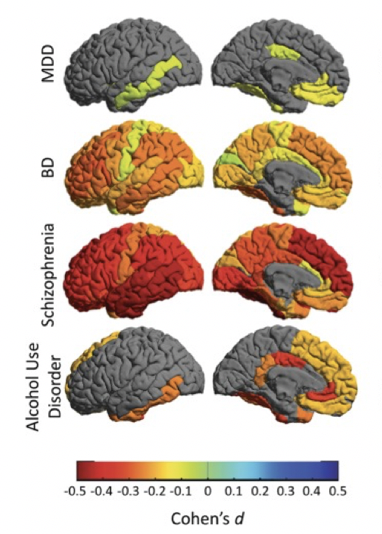
Teen Inflammation Glutamate Emotion Research (TIGER)
The TIGER study seeks to understand the roles of inflammation and glutamate on behavioral and neural phenotypes of depression in adolescents. We use dried blood spot testing to estimate peripheral levels of pro-inflammatory cytokines, magnetic resonance spectroscopy to image cortical glutamate, and multimodal MR imaging to characterize the structural and functional architecture of networks implicated in depression.

Effortless Assessment of Risk States (TIGER EARS)
MR imaging is currently not an accessible technology but smartphones are. EARS is a pioneering smartphone app that leverages data collected seamlessly from naturalistic phone usage in order to infer cognitive and affective states relevant for depression risk. The goal of TIGER EARS is to integrate digital phenotypes with neurobiological phenotypes in order to move toward scalable biomarkers of depression. TIGER EARS is being conducted in collaboration with Dr. Nicholas Allen at the University of Oregon and founder of Ksana Health.

Stress, Emotion, Endocrine, and Neurodevelopment (SEEN)
The broad goal of SEEN is to elucidate the multifaceted roles of puberty on susceptibility to stress, mood dynamics, and longer term neurodevelopment. We are currently examining the effects of life stress, pubertal stage, and hormones on brain circuitry in a longitudinal study of typically developing youth in collaboration with Dr. Ian Gotlib at Stanford University. We are also currently examining the relative utility of pubertal indices in explaining neurophenotypes and risk for depression in the NIH-funded ABCD longitudinal study of over 11,000 youth using machine learning predictive analytics.

Enhancing Neuroimaging Genetics through Meta-Analysis
Dr. Ho collaborates with researchers across the world through the ENIGMA consortium to identify the effects of depression and stress on brain morphometry.